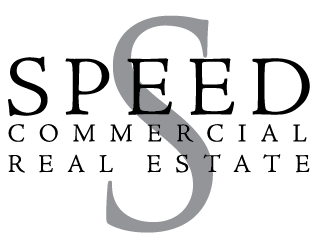If you’re ready to take the leap into starting your own business, you’re in good company. In Mississippi alone, nearly 40,000 new businesses have been formed in the first half of 2021. Nationwide, over two million business applications have been filed.
Business owners who stay organized and take planned steps have the best chance of long-term success. In fact, 71% of fast-growing companies utilize detailed plans. That’s why we put together this short 5-point checklist for starting your own business and making the most out of your new venture’s “honeymoon period.”
1. Set Up Your Finances
Finances are the backbone of any business because they allow your products, services, teams, and ideas to stand tall and grow.
Decide on a Business Structure
How your business is structured determines your liability, taxes, the paperwork needed to register, and funding. Corporations, limited liability corporations (LLCs), and some partnerships all offer varying degrees of protection from personal liability for business debt, while sole proprietorships don’t separate personal and business financial responsibility. You can learn more about the perks and drawbacks of each type of business here.
Decide on a Financing Option
There are several options available to secure funding when you’re starting your own business. Depending on which one you choose, you’ll likely need to write a business plan, which can be optimized using business planning software.
Most financing options require several financial statements, including a startup budget, costs worksheet, P&L statement, break-even analysis, and a sources and use of funds statement.
Here are seven top ways your new businesses can be financed:
- Loans
- Investors
- Grants
- Subsidies
- Crowdfunding
- Family and Friends
- Self-Funded
For those interested in purchasing rather than leasing commercial property, you can take a look at the types of loans available in the commercial space.
2. Register Your Business
In each state, the Secretary of State (SOS) office has the forms, regulations, and guidance available to ensure that your new company is properly registered. Below are some of the key highlights to check off your registration list.
Pick a Business Name
The SOS office can typically tell you whether any of the names you’re considering are already in use in your state. This is especially useful to know when dealing with your competitors.
Register Your Domain Name Online
While your favorite business name may be available in your state, it may already be connected with a popular website. You can do a quick google search to find out. Then, do a domain search to choose a web address.
Register with Federal, State, and Local Agencies
Besides being the source of your business registration forms, the SOS office is also where you typically file the required paperwork to register your business. Some cities, counties, and municipalities may also require separate registration. At the federal level, you can file to register your business tax ID, trademarks, patents, and certain types of corporate status.
Register with the IRS and State Offices
To open a bank account, file taxes, pay staff, obtain permits, and various other operational functions, you’ll need your federal tax ID. Certain states require a separate tax ID as well.
Open a Business Bank or Credit Union Account
There is a slew of benefits to creating a separate bank or credit union account when starting your own business. These include an emergency line of credit, access to secure merchant services so you can accept credit cards, and establishing a favorable credit history for your company.
3. Choose a Business Location
Perception is reality. That’s why your physical locale affects all aspects of your operation, from branding and visibility to attracting the right talent and growing your customer base. In fact, deciding where to locate your new business is one of a handful of decisions that can have the largest impact on your success.
Take a look at our top five “to-do list” items for choosing an ideal locale.
Get to Know the Zoning Requirements
The type of space you need may be available in some parts of a city or region, but not others. That’s why it’s important to ask yourself, “How will my business be zoned?” While many businesses are zoned commercially, others are considered multifamily, office, industrial, or mixed residential and commercial. Within the commercial designation, there may be several subcategories, such as is the case in Jackson, Mississippi.
Knowing where you can legally locate your business is a necessary first step. Then, compile a list of properties that catch your eye and make your shortlist of desirable buildings.
Decide if You’ll Lease, Buy, or Design and Build
Most businesses lease or even purchase the commercial real estate where their company resides. However, if your business happens to be Commercial Real Estate (CRE) investing (or if you’d like to expand outside your traditional business parameters) designing may be the best option.
Whatever your decision, it will affect where you locate your business. For instance, if no land is available in the Central Business District (CBD), those interested in designing and building a space there may need to consider other options, such as a redesign of an existing space or choosing a different locale. Likewise, business owners interested in leasing a building with LEED, Energy Star, or other environmental certifications might look outside any “Old Town” sections of the city. Landlords in those areas could have a difficult time meeting both green and preservation standards.
Consider Your Customer Base
Here’s where the market research from your business plan comes into play. Who is your ideal customer and what demographic are you targeting? Restaurants, for instance, would do well to locate within walking distance of residential or business hubs. Corporate offices may be more tailored to upper-level management and HR activity, and therefore can be located away from pedestrian traffic lanes.
Align with Your Budget
Your business plan financial statements let you know which location options best match your available finances. In many cities, more popular neighborhoods like the CBD may bring in lots of traffic, but they also tend to cost more. If your finances are relatively strong, this can be a great space for starting your own business and quickly growing it. Even if you have limited funding, finding a real estate agent with a reputation for locating needle-in-the-haystack deals could land you in your ideal spot. In the meantime, consider the locales that match your current budget. Set yourself up for success early on.
Check out the Neighborhood
“Farming” the neighborhood allows you to check it out firsthand to find out the market value of properties, and also if there are any nearby competitors. Depending on the type of company you’re starting, you can also ask around about the neighborhood’s reputation for drawing in business. Ask about any regulations that may add or detract from the value of the property.
4. Apply for Operating Permits and Licenses
Once you know the location where you’ll be setting up shop, your next step is obtaining any necessary federal, state, city, or industry-specific operating permits and licenses. Some of these require passing certain testing and certifications, especially at the federal level. Others charge fees, require proof of registration, and focus on product and service quality standards.
Here are a few examples of common permits and licenses:
- Oversize vehicle permit
- Health inspection permit
- Local business license
- County privilege license
5. Consider Your Building Needs
Here’s where the big picture really meets the minute details. Taking time to dig deep into your building criteria ensures that when the ink is dry on your contract, you’ve covered all your bases, your needs are met, and you can relax into comfortably doing business.
12 Top Space Needs to Consider
- What spaces and equipment do the day-to-day activities require? For instance, some examples include technology build-outs, worker break rooms, retail space, warehouse space, back-up generators, drive-through lanes, AC units, showrooms, elevators, offices, and delivery zones.
- How much space in square feet do you need for each activity? This can be dependent on the number of employees, customers, products, and equipment that will occupy each area.
- How much parking will you need? If there’s no parking lot on-site, check to see if one is nearby or if there is a parking garage within walking distance.
- What are your storage needs?
- What amenities will be offered and how will this impact your building needs? For instance, do you want tall windows to let the light in, meeting rooms for employee/client conferences, or an on-site cafeteria?
- Do you need traditional or flex space? The latter can be quickly (and legally) converted to serve different activities as your business changes and grows.
- Are you willing and able to share space in order to save on costs?
- What are your electric power needs? Determine the number of outlets and their power capacity, and compare this against your equipment’s power requirements.
- What are your communications technology needs? Ask whether the space is wired for high-volume internet if this is one of your needs.
- Can the building be altered? Examples include adding ventilation and soundproofing.
- Should your building be green-friendly?
- What is your building budget?
Starting Your Own Business? Contact a Commercial Real Estate Agent
Once your checklist is complete, you’re ready to connect with a professionally trained commercial real estate agent to transition from “brand new” to a brick-and-mortar business. A Tenant and Sales Representative from Speed Commercial Real Estate can guide you through the various costs and considerations associated with a CRE lease for your new business. Additionally, we offer real estate guidance for those interested in purchasing.
Contact us today to get started on one of the most important steps of your entrepreneurial adventure.

